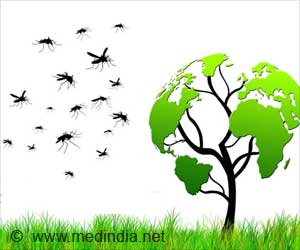A new study has blamed global warming which is causing ecosystem changes in many temperate North American and Western European lakes.
The study, conducted by researchers at Queen's University and the Ontario Ministry of the Environment in Canada, reports that striking changes are now occurring in many temperate lakes similar to those previously observed in the rapidly warming Arctic, although typically many decades later."Our findings suggest that ecologically important changes are already under way in temperate lakes," said Queen's Biology research scientist, Dr. Kathleen Ruhland, from the university's Paleoecological Environmental Assessment and Research Lab (PEARL) and lead author of the study.
The scientists studied changes over the last few decades in the species composition of small, microscopic algae preserved in sediments from more than 200 lake systems in the northern hemisphere.
These algae dominate the plankton that float at or near the surface of lakes, and serve as food for other larger organisms.
Striking ecosystem changes were recorded from a large suite of lakes from Arctic, alpine and temperate ecozones in North America and western Europe.
Aquatic ecosystem changes across the circumpolar Arctic were found to occur in the late-19th and early 20th centuries.
Advertisement
"As expected, these changes occurred earlier - by about 100 years - in highly sensitive Arctic lakes, compared with temperate regions," said Dr. Smol, recipient of the 2004 Herzberg Gold Medal as Canada's top scientist.
Advertisement
The authors believe that, although the study was focused on algae preserved in lake sediments, changes to other parts of the aquatic ecosystem are also likely.
"The widespread occurrence of these trends is particularly troubling as they suggest that climatically-induced ecological thresholds have already been crossed, even with temperature increases that are below projected future warming scenarios for these regions," said Dr. Paterson.
The authors warn that if the rate and magnitude of temperature increases continue, it is likely that new ecological thresholds will be surpassed, many of which may be unexpected.
"We are entering unchartered territory, the effects of which can cascade throughout the entire ecosystem," concluded Dr. Smol.
Source-ANI
SAV








